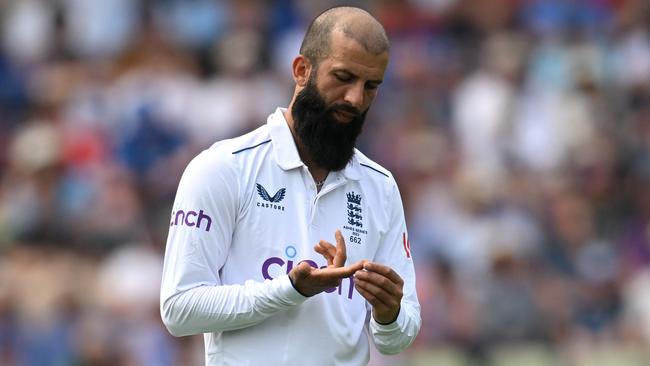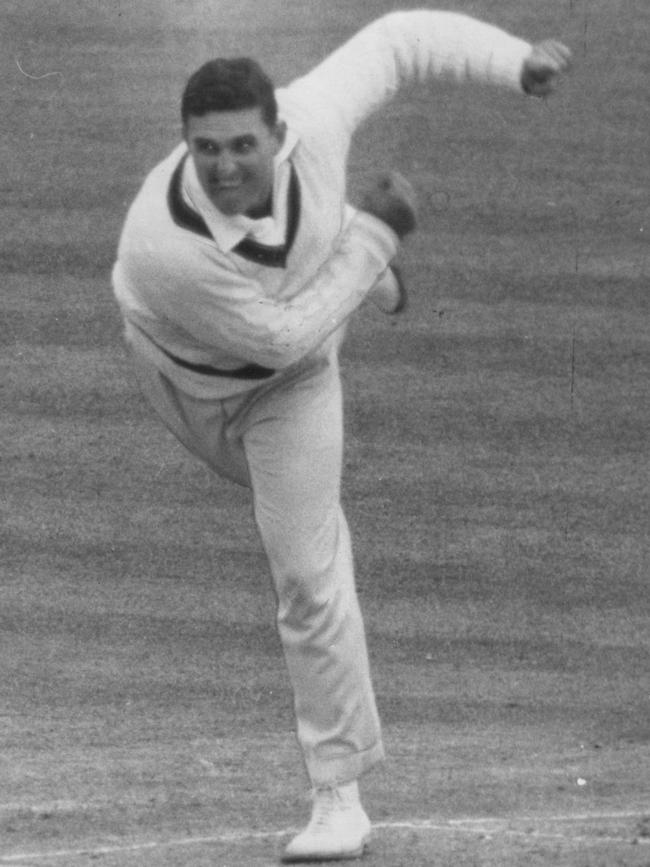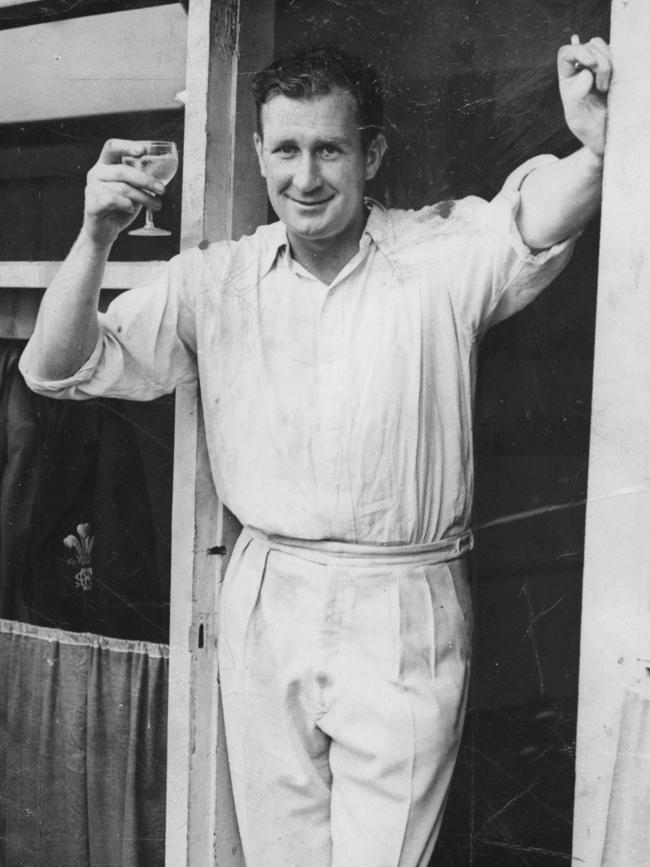Ashes: Cricket may have changed in 60 years but fingers haven’t

Their go-between had been Veivers’ countryman and Laker’s old rival Keith Miller. Veivers, a burly, rubicund Queenslander, had struggled with the English cold, and the lacerating seams of English cricket balls. With the modest attack at his disposal, captain Bob Simpson had been depending on Veivers’ capacities as a stock bowler: that capability was now in jeopardy.
When I interviewed Tom some decades later, he still had the scrap of paper on which Laker furnished, one imagines with all the furtiveness of a spy imparting a nuclear secret, his hand-hardening formula for spinning success: 85 per cent pure alcohol, 10 per cent formalin, 5 per cent surgical spirit.
Quite a gesture in an Ashes series, especially given its subsequent efficacy. No Australian has bowled more first-class overs on a postwar Ashes tour, 754.5, including an Ashes record spell in Manchester, 95.1-36-153-3: enough to make a statto weep with joy. So there you are Moeen: cricket may have changed in 60 years but fingers haven’t, so maybe the ancients have something to offer the moderns after all.


For the moment, one suspects, it is too late for Moeen’s raw finger. His desperate remedies - a ‘drying agent’ applied on the field to relieve his injury - have cost him a quarter of his match fee, a demerit point and a deal of his prospective effectiveness the rest of this match.
Too many other factors are at play for Moeen’s finger to be deemed the Edgbaston version of Cleopatra’s nose - that coinage of Pascal’s for the inconsequential detail with vital impact (‘Had Cleopatra’s nose been shorter, the whole face of the world would have been changed’).
But it is an unlucky charm: when Moeen began to loop up painful full tosses yesterday, one was reminded of his misfortunes at the top of his last Ashes series, when he arrived with a tender finger that quickly wore out.
Not every slow bowler ends up suffering similarly: Shane Warne’s fingers remained soft and pliable his whole career, on account of his uncannily loose grip on the ball. But most spinners worth the name end up with finger joints embossed in corns and callouses from the friction involving in rotating the ball.
They either soldier on, like Warne’s old mucka Tim May, who used to bowl on with bloody fingers, or latch onto a remedy like Warne’s old guru Richie Benaud, who was introduced to a combination of calamine lotion and boracic powder by a chemist in Timaru.
Had he tried it? the chemist asked. It worked wonders on pensioners’ leg ulcers. So effective did Benaud find the potion that he shared it with Alf Valentine during the Worrell Trophy of 1960-61, further attesting the good spirit of that great series.
The riskiest period for any slow bowler is after a lay-off - of exactly the kind Moeen has just returned from.
Having always had an ambivalent relationship with his spinning skills, these days he bowls but little. MS Dhoni gave Moeen 10 deliveries per game in the recent Indian Premier League; Ben Stokes apportioning him 198 deliveries in Australia’s first innings reinforces the Hail Mary nature of his recall. So much for that Ashes ‘free hit’, as Moeen optimistically called it; Test cricket is only ever a long slog.
In Test cricket, too, everything can be seen as connected, and it is not wisdom after the event to observe that England have here paid a price by opting for batter-keeper Jonny Bairstow over keeper-batter Ben Foakes: plenty of good judges wondered aloud when the decision was made.
It has worked out pretty much as one would have expected, if not feared: Bairstow’s batting runs have been offset by his semi-regular keeping errors, which narrowed England’s lead, have taken critical time out of the game, and also…..added to Moeen’s workload.
What if Moeen had struck twice in his fifteenth over, rather than once, and had Cameron Green stumped as well as Travis Head caught? Would his finger have then had time to recover before the more important task of bowling in the fourth innings? Australia’s innings would, at any rate, not have been so prolonged that England’s openers yesterday found themselves batting in the toughest conditions of the match.
None of these considerations, of course, does cricket measure as meaningfully as it does runs, but that does not mean they don’t count, and over the course of the Ashes the risk will grow not contract. Exciting as Bairstow’s batting may be - and it is terrific, chock full of fight and spirit - you would hardly trust him to convey the close-in fielder’s helmet from one end to the other safely at the moment.
Things might have been worse for England had rain yesterday not first delayed then curtailed play for the day with two scoreless batters at the crease. The crowd suffered these interruptions, it should be said, with commendable forbearance, holding fast to the terraces even as the rain intensified, and showcasing a colourful array of ponchos, anoraks, and, above all, umbrellas. Umbrellas in this country are a serious business. One saw barely two the same.
In Australia, the very thought of rain stirs commentators to dark demands for roofs, canopies, schedule changes, games to occur on sound stages or in underground caverns etc. Here it seems part of the national embrace of discomfort as a way of life. But not every discomfort can just be shrugged off. Just ask unlucky Moeen.






The two men had not previously met when, in June 1964, they rendezvoused at the Brown Bear in Whitechapel. But Tom Veivers and Jim Laker had something important in common: Veivers was Australia’s best finger spinner of the time, Laker perhaps the greatest of all.